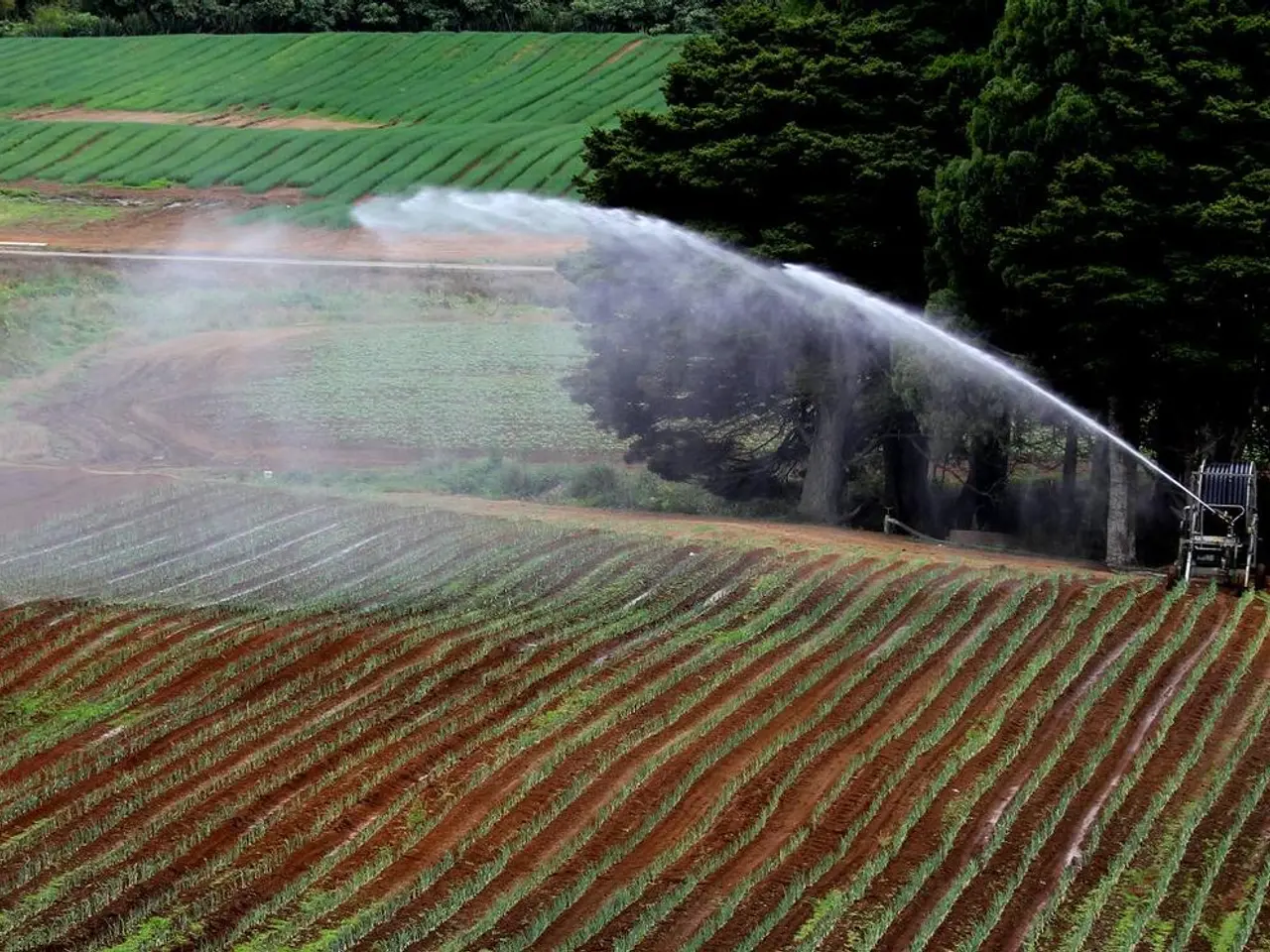Discussion at PMEF-2025 VTB Session Highlights Potential Growth Areas for the Global South
Let's Talk Economics June 20, 2025, 16:07
Ad Money During a discussion at VTB, financial pros put forward plans to boost the economy of developing nations.
Image courtesy of VTB
Recently at the VTB session during the St. Petersburg International Economic Forum (SPIEF-2025), experts passed around ideas for the economic growth of countries in the Global South. Some of the proposed solutions included building new financial hubs, enhancing trade routes, strengthening depository links, and fostering a welcoming atmosphere for investors. They also deliberated over the possibility of doubling Russia's GDP in twelve years and abandoning dollar transactions.
Andrei Kostin, the head honcho at VTB, declared that the Global South should work towards constructing an alternate financial system that fuels economic growth.
"We need to create new economic powerhouses alongside the present U.S. dollar system based on the Bretton Woods system," Kostin emphatically stated, shedding light on the looming global conflicts with the West.
According to him, BRICS countries hemorrhage approximately $30 billion a year due to their attachment to dollar transactions.
"Political pressure through the dollar has become too much. Countries like China realize this and are searching for alternatives," he said.
Anton Siluanov, the finance minister, suggested that linking the financial markets of Global South countries would draw in extra investments. He emphasized the importance of digitalizing the financial infrastructure:
"We need to utilize digital capabilities, digital national currencies, and digital financial assets to connect with any investor interested in working with Russia."
Siluanov also highlighted the necessity of creating conditions that attract foreign capital regardless of whether the investor hails from a friendly or hostile country.
"It doesn't matter if the investor comes from a friendly or unfriendly nation, they'll still be able to withdraw their money and make a profit despite existing capital restrictions. We need these types of solutions,” the finance minister concluded, expressing hope that the proposals will gain support.
Oleg Deripaska, founder of En+Group, remained optimistic that Russia would re-emerge on the international market once current geopolitical issues are resolved.
"What we're achieving now with the Global South countries will serve as the foundation for the future. Our mission for the next twelve years is to double Russia's economy and establish competitive industries in critical sectors," he concluded.
In summary, the discussion participants agreed that collaboration is vital for creating new financial and trade systems, which will be a significant step for the Global South amidst the evolving global economy.
These nations could expand the BRICS alliance by inviting new countries like Nigeria, Kazakhstan, Thailand, Cuba, and Uzbekistan, allowing them to engage more actively with BRICS platforms. This will build a larger coalition focused on de-dollarization, technological self-sufficiency, and multipolar cooperation [3].
This alliance aims to establish and boost trade routes connecting Russia with regions such as Latin America, Africa, Southeast Asia, and the Middle East, which are crucial for increasing trade efficiency and boosting cargo exchange [3][5].
They also plan to collaborate on joint industrial and technological ventures, including agro-industrial products, advanced farming technologies, and new-generation vehicles designed for both the Russian and African markets [5].
The panel also discussed restructuring agricultural supply chains and advancing the joint development of digital platforms and AI infrastructure, emphasizing the need for economic modernization and increased technological capacities in Global South countries [3].
The proposed financial cooperation aims to increase coordination between BRICS and partner countries' central banks and finance ministries to expand the use of national currencies in international transactions, thus reducing dependence on dominant currencies and increasing financial independence [3][5].
In light of the discussion at VTB, strategic moves are being considered to strengthen the Global South's economy by fostering new financial systems, such as bolstering business ties through digitalization and linking financial markets, as suggested by Anton Siluanov. This industry-wide initiative is also aiming to enhance trade routes and collaborate on industrial and technological ventures, including agriculture, AI, and advanced vehicles, across various regions like Latin America, Africa, and Southeast Asia.




